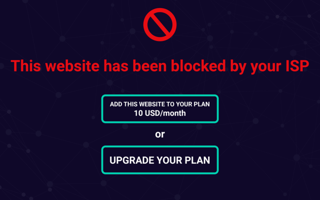
Tomorrow, the Federal Communications Commission will vote on whether or not to uphold net neutrality regulations passed in 2015 under the Obama administration.
These initial regulations went into effect to ensure all web traffic receives the same treatment. They prevent large internet service providers (ISPs) from throttling or blocking services based on how much content customers consume and prohibit providers from up-charging users to access certain sites.
The FCC’s Dec. 14 proposal to revoke these regulations — called the Restoring Internet Freedom Order — would effectively allow ISPs to control what viewers see, charge additional rates to unlock gated content and issue extra fees for digital tech companies that interface directly with consumers.
Without net neutrality, startups will lose the ability to fairly compete."
Broadband companies have pinky promised they don’t have plans to block or adjust internet access, but according to a recent CNet article, several ISP executives have expressed interest in offering paid-priority services.
The result could wreak havoc on startups and smaller businesses that cannot afford additional fees, while putting a thumb on the scale in favor of larger, wealthier and more politically influential companies like Amazon.
“A free and open internet has enabled the worldwide growth of ideas, business and equality,” said Sara Rodell (pictured right), founder and CEO of Austin-based Loop & Tie. “The internet gives a voice to marginalized groups and allows small business to compete side-by-side with established business. Without net neutrality, startups will lose the ability to fairly compete.”
Rodell, who recently landed her startup a $250,000 investment from Salesforce Ventures at this year’s Dreampitch, added that dissolving an open internet hurts innovation and negatively impacts businesses without significant capital. She, along with the founders of Austin-based BlazingDB and 200 other tech startups from around the United States, signed a letter addressed to the FCC requesting to keep the existing regulations.
Joseph Kopser, an Austin tech entrepreneur currently running as a Democratic candidate for the 21st Congressional District, is also gathering local support to petition against the FCC vote.
“For years, I’ve worked with tech entrepreneurs, veteran-owned small businesses and local startups in Central Texas,” wrote Kopser (pictured right) in a campaign email to his supporters. “Net neutrality ensures that they can get their message and their products to consumers. It gives them a seat at the table and lets them compete with big corporations — and that helps drive down costs for consumers like us.”
Conversely, FCC Chairman Ajit Pai and acting Federal Trade Commissions Chair Maureen Ohlhausen say that repealing the regulations will restore jurisdiction to the FTC and lead to innovation among broadband networks.
The power shift would leave the FTC to determine on a case-by-case basis when ISPs misbehave — and how to penalize them in accordance to new transparency rules. These rules would require companies to publicly disclose how they decide on-site blockages, paid prioritization, throttling and congestion management.
"It’s hard to imagine a scenario in which changes to net neutrality do not adversely impact the creative ecosystem we have come to know in the connected world,” said Hugh Forrest (pictured right), SXSW chief programming officer. “But, more importantly, if a decision is going to be made that will critically affect innovation and infrastructure on a global scale, we have to pay attention and listen to all of the stakeholders. The FCC has largely ignored the internet community in this decision."
Forrest also noted the flooding of chatbot accounts and fake profiles, mostly in opposition of net neutrality, that pollute the FCC’s public commenting systems. That influx of bot activity led Jessica Rosenworcel, an FCC commissioner, and members of Congress to request a delay in the vote in order to launch an investigation.
“It’s hard to have a meaningful dialogue when one side is driving a shadow campaign to influence the issue,” said Forrest.
If passed, the new order would go into effect in early 2018.
To learn more about how you can aid the fight for net neutrality, visit Battle for the Net.






